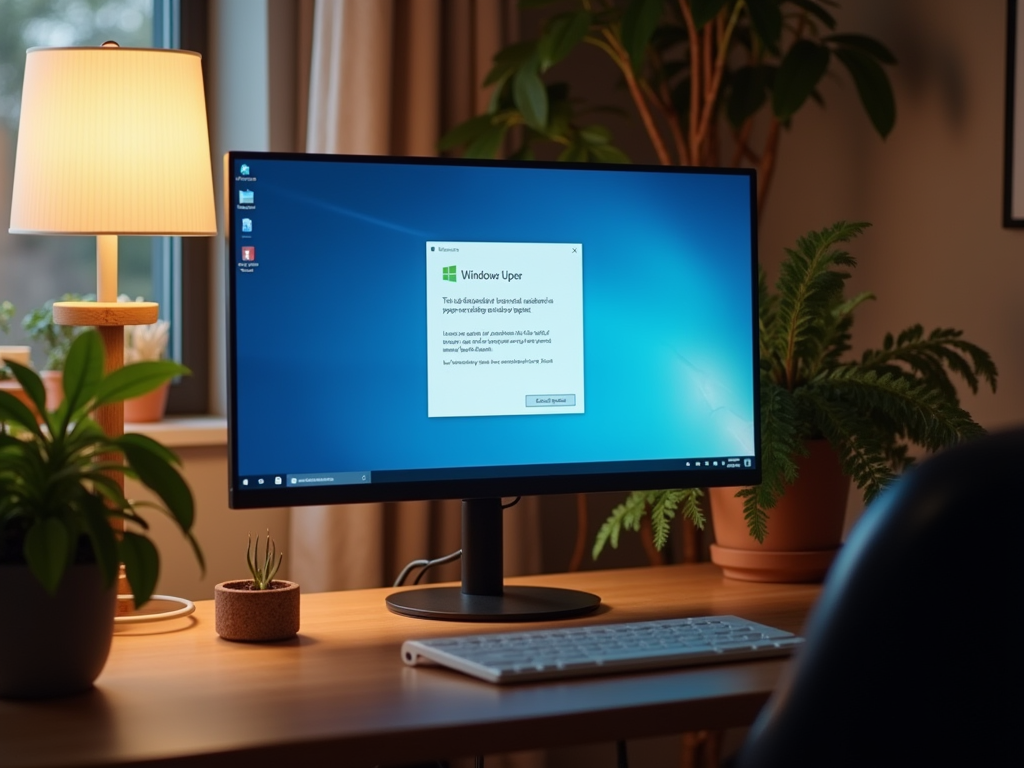Yes, Windows updates are indeed necessary for the overall health and security of your computer. Keeping your system up-to-date ensures that you benefit from the latest features, enhancements, and critical security patches. In this article, we will explore the significance of Windows updates, their impact on performance, security, and user experience, as well as potential issues surrounding them.
The Importance of Security Updates

One of the primary reasons to regularly update your Windows operating system is to maintain its security. Cyber threats continue to evolve, and hackers are constantly looking for vulnerabilities to exploit. Windows updates often include essential security patches that address known vulnerabilities and help safeguard your system against malware, ransomware, and other threats. Failing to install these updates exposes your system to potential attacks.
In addition to providing protection, security updates can also enhance your online privacy. Many updates are designed to fix weaknesses that might inadvertently allow unauthorized access to your personal data. The importance of these updates cannot be overstated, as a single unpatched vulnerability could lead to catastrophic losses, including identity theft. Thus, timely installations of security updates play a crucial role in protecting your identity and sensitive information.
Another reason to embrace Windows updates is the potential for improved system performance. Updates often include enhancements and optimizations designed to improve your device’s overall operational efficiency. Over time, software can become bloated or inefficient, resulting in slow performance. Regular updates can help mitigate these issues by refining existing features or even removing outdated applications.
Moreover, updating your Windows operating system can sometimes introduce new features that enhance your user experience. These enhancements may include better resource management, improved graphics performance, and additional functionalities that contribute to a more polished experience. By neglecting updates, you may miss out on valuable improvements that could streamline your daily computing tasks.
Compatibility with New Software

Another crucial reason to perform Windows updates is to ensure compatibility with new software applications. As technology evolves, software developers often create applications that rely on the latest features present in the newest operating systems. Failing to keep your Windows OS updated may result in software compatibility issues, leading to system crashes or performance degradation.
This is especially important for professionals and businesses that rely on specific software for their daily operations. Using outdated software can be detrimental, especially when collaborating with others or when requiring tech support. By updating your Windows operating system, you can not only ensure that you run the latest applications smoothly but also guarantee that you have access to important bug fixes and feature enhancements released by software developers.
Potential Drawbacks of Windows Updates
Despite their many advantages, Windows updates can occasionally come with drawbacks. Some users report experiencing system slowdowns or glitches immediately after an update. These issues can stem from compatibility conflicts with existing apps or hardware. Additionally, not every update is stable; occasionally, Microsoft releases updates that may cause system instability, resulting in crashes or other problems.
There are also concerns regarding the size of updates, which can be substantial. Large updates can lead to slow download speeds, particularly in areas with poor internet connectivity. Furthermore, for users with limited data plans, substantial updates can consume a significant portion of their data allowance. It’s essential to weigh these potential drawbacks against the benefits of keeping your system updated.
Conclusion
In conclusion, while Windows updates may have occasional drawbacks, their benefits far outweigh the negatives. Keeping your operating system updated ensures enhanced security, improved performance, and compatibility with new software. Regular updates protect your data from threats, keep your applications running smoothly, and occasionally introduce exciting new features. Therefore, it is crucial to set a routine for checking and installing updates to maintain a secure and efficient computing environment.
Frequently Asked Questions
1. How often should I update my Windows operating system?
It is recommended to enable automatic updates to ensure that your operating system receives updates promptly. However, if you wish to check manually, doing so at least once a month is advisable.
2. What should I do if an update causes my PC to crash?
If an update causes instability, you can try rolling back the update via the ‘Update & Security’ settings in Windows. If problems persist, consider seeking support from Microsoft or a professional technician.
3. Are there any ways to prevent updates from disrupting my work?
You can schedule updates to install during off-peak hours or set your active hours in Windows settings to limit disruptions during your productive time.
4. Can I uninstall Windows updates?
Yes, you can uninstall updates if they are causing issues. Go to the ‘Update & Security’ section, find ‘View update history,’ and select ‘Uninstall updates’ to revert to a previous version.
5. Do I need to update Windows if I use antivirus software?
Yes, while antivirus software provides an additional layer of protection, it does not replace the need for system updates. Keeping your Windows OS updated is essential for patching vulnerabilities that antivirus software cannot address.
